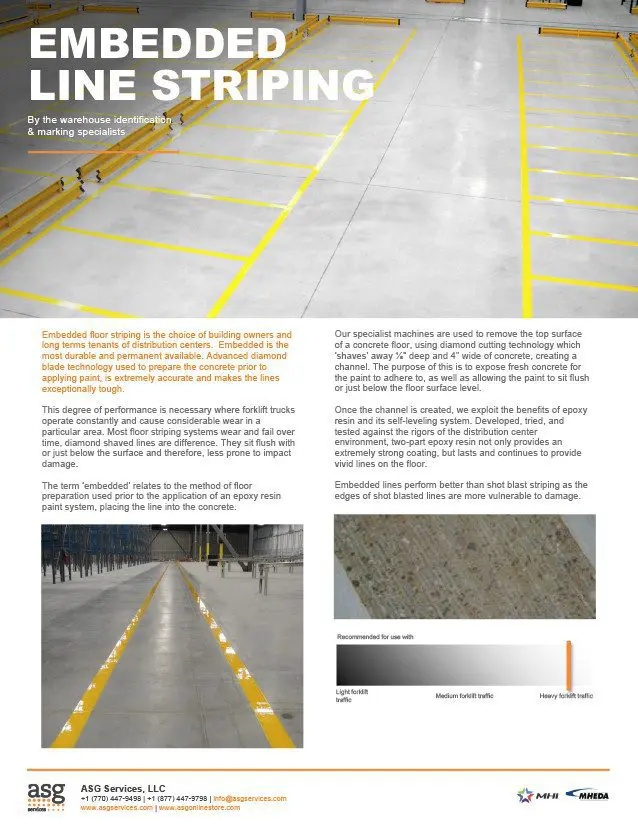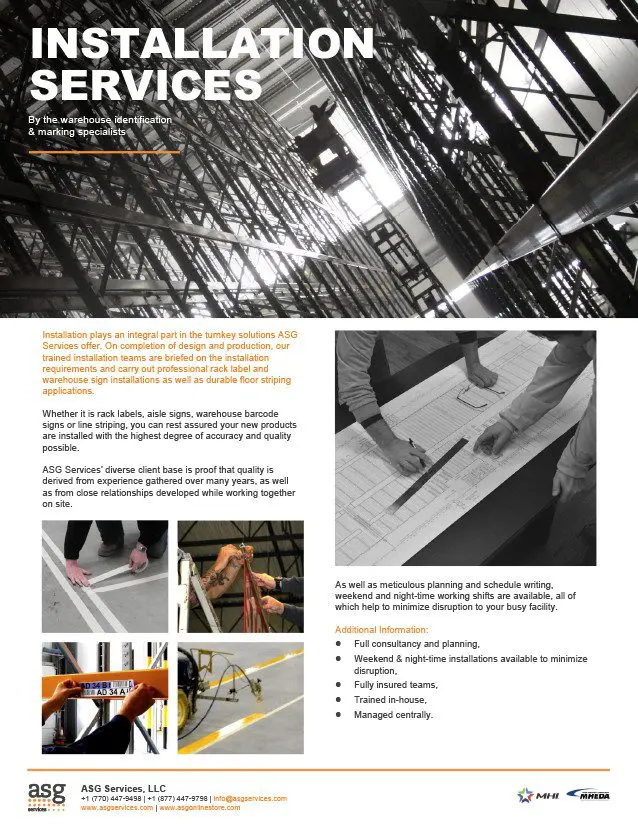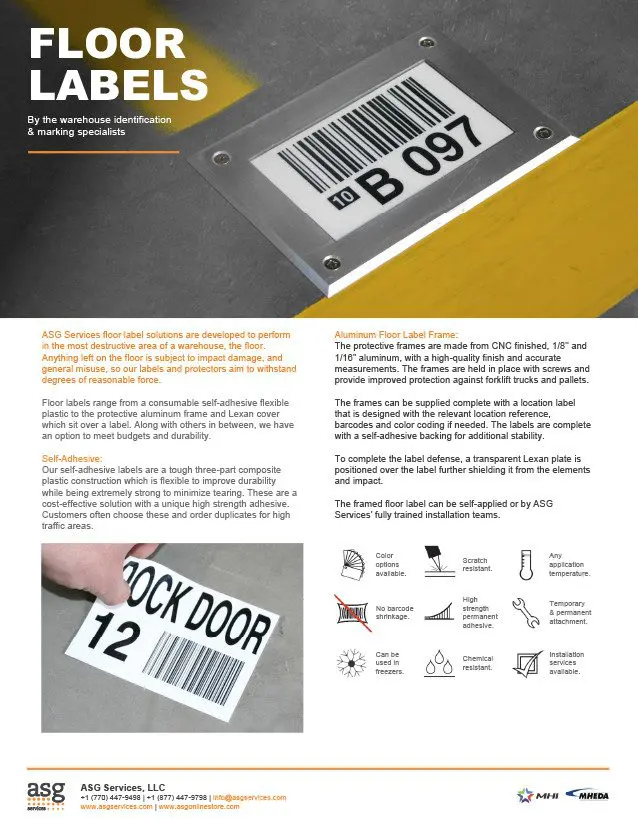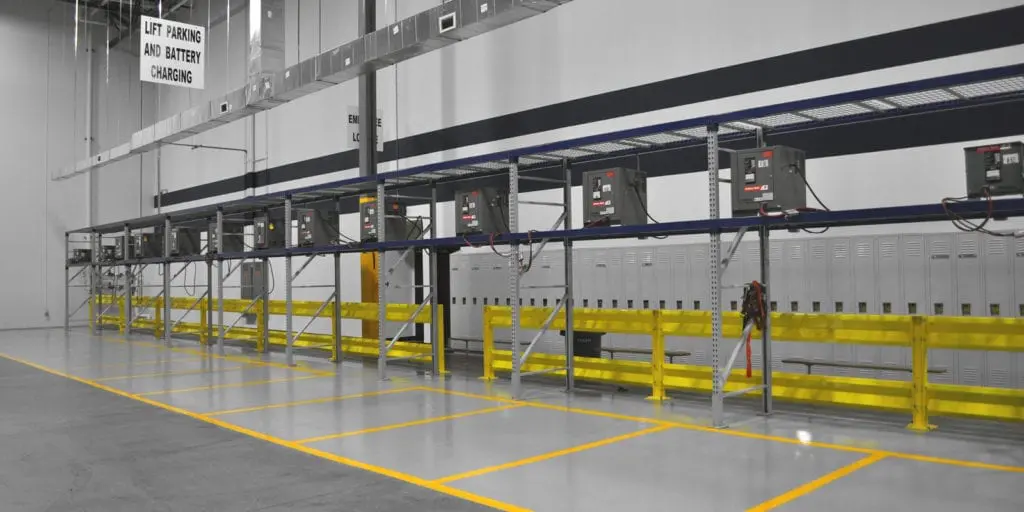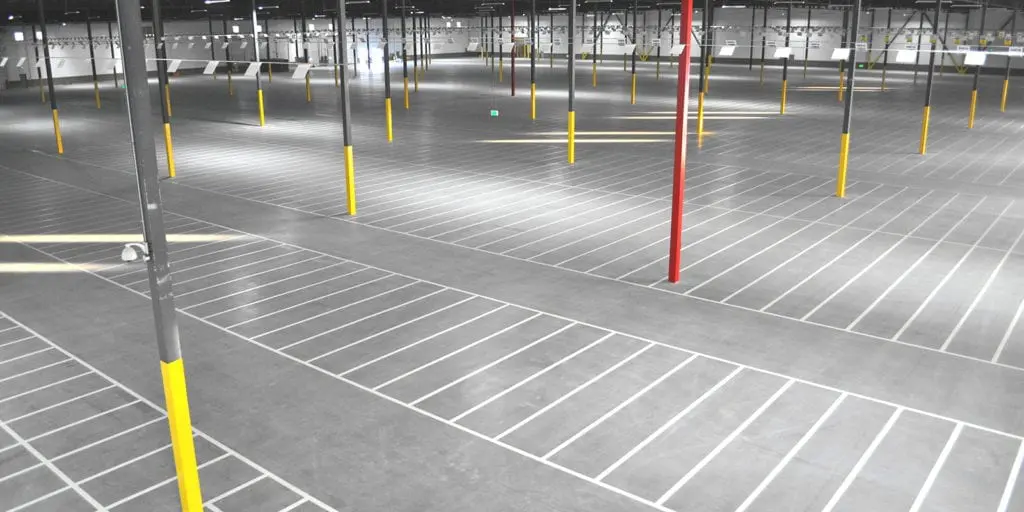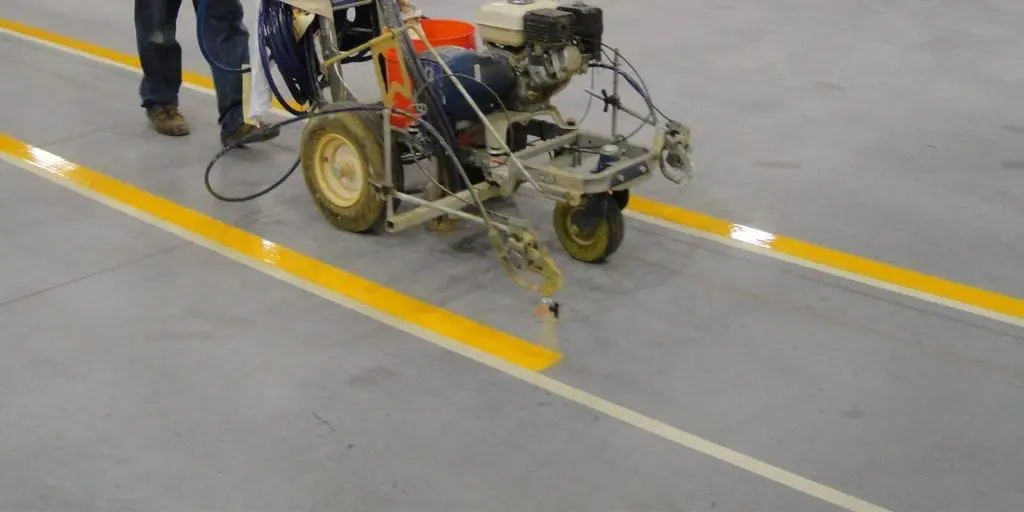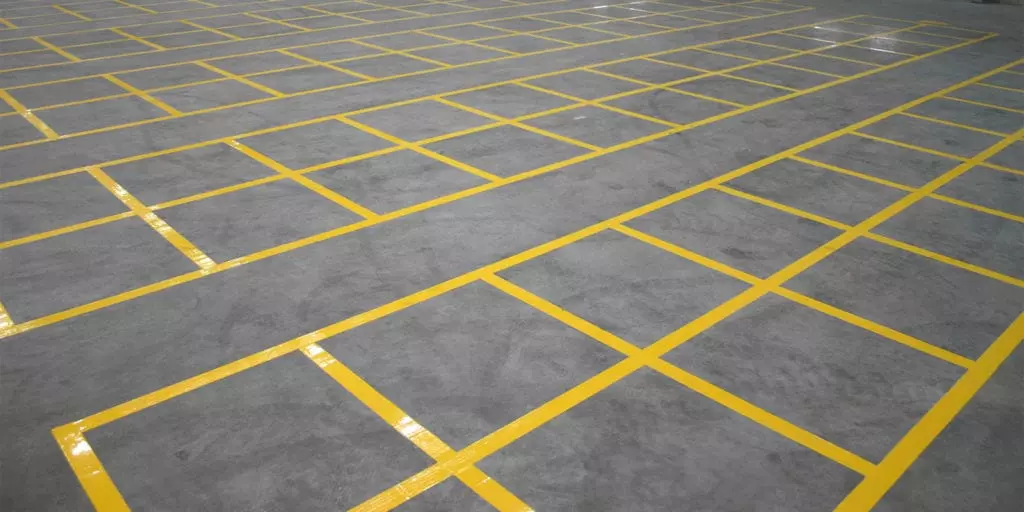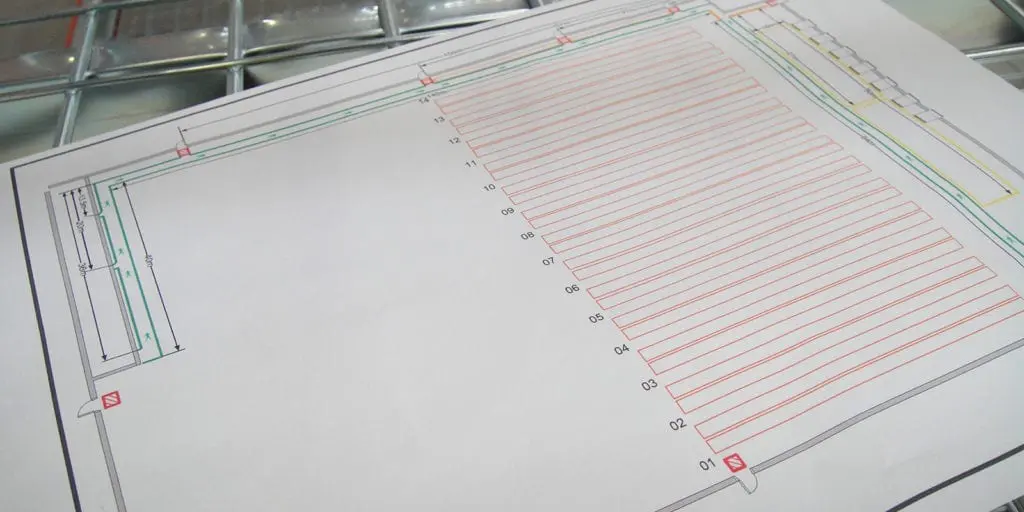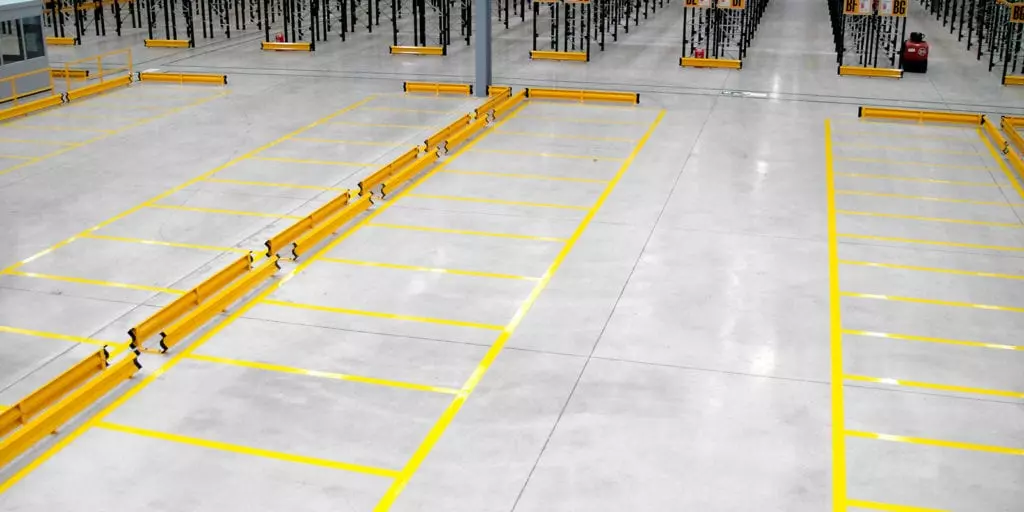
Warehouse Striping
Durable Striping – Embedded
The premium warehouse striping solution is ASG Services world renowned embedded striping.
Providing striping solutions throughout the US.
The premium warehouse striping solution is ASG Services world renowned embedded striping. A channel is created in the concrete floor surface, removing around ⅛ of an inch and to a predetermined width, typically 4 inches. Our installation teams then fill this channel with a high-build epoxy compound to create the most durable form of warehouse striping we are aware of.
Advanced equipment utilized by ASG Services is fitted with rows of diamond cutting blades for high precision preparation. Embedded durable floor striping is not widely known, we are unaware of any other company performing this installation in the US.
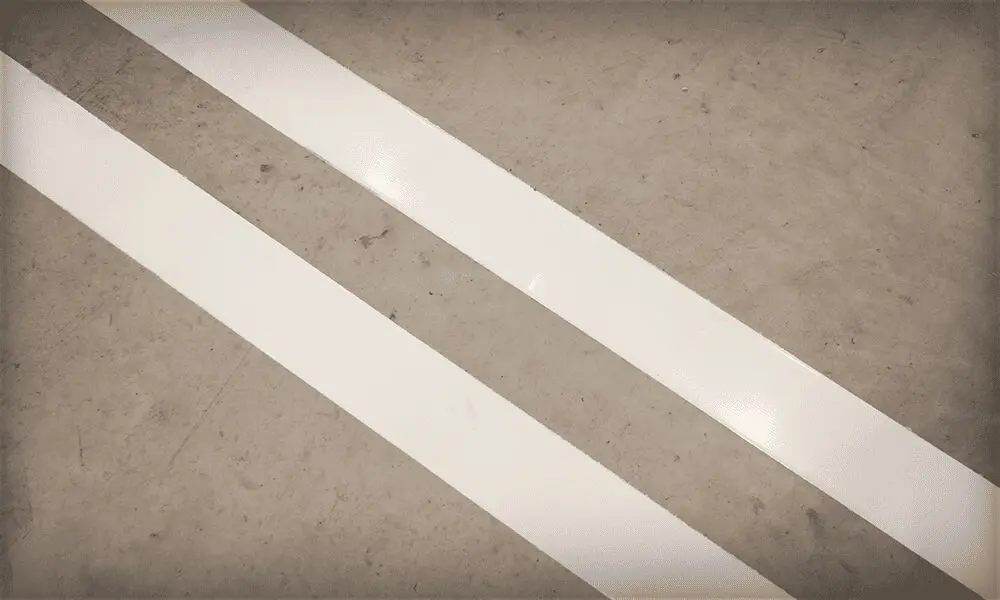
Concrete Preparation.
The reason for this level of preparation is to prevent material handling equipment from striking the edge of the epoxy paint. Most paint and tapes are applied to the surface which means the forklift truck hits the edge and rides up onto the line. The forces exerted are far too great for paint or tapes to withstand the pressure, which is why painted floor striping and floor tapes wear and/or fail. Placing the paint below the surface prevents this, the forklift trucks ride onto the line without applying any shear force.
Embedded floor striping is the most durable method of warehouse striping we know, it takes longer to apply than any other and costs more, however it should be seen as an investment. Once complete, our customers do not have to recoat every month, or once a year, therefore saving money in ongoing maintenance.
Due to the overall cost, we advise customers to consider this option for their most high traffic areas, which results in cost-effective, high-performance installation.
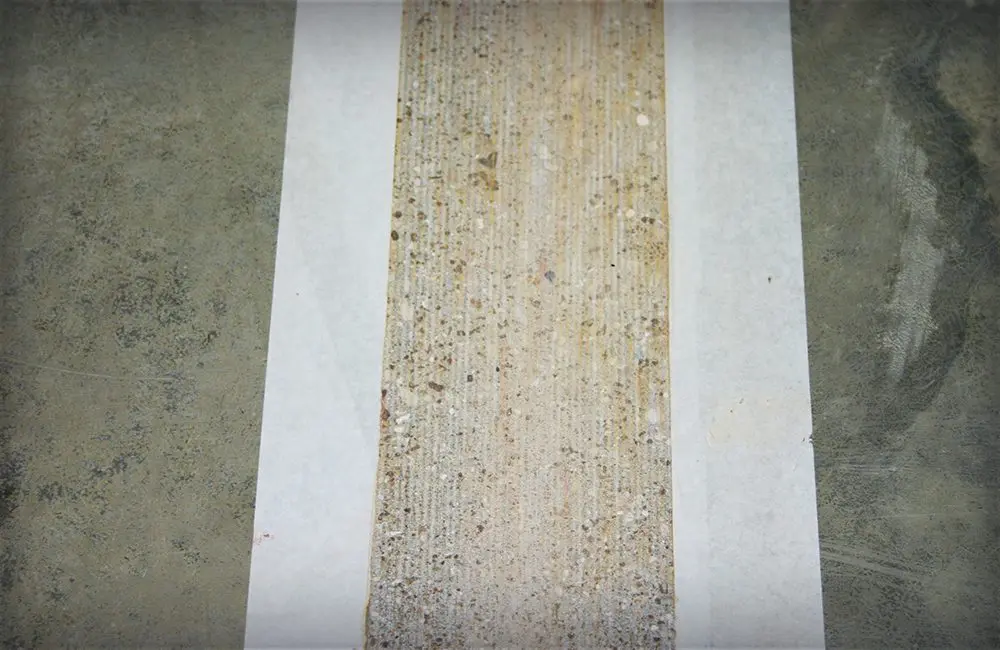
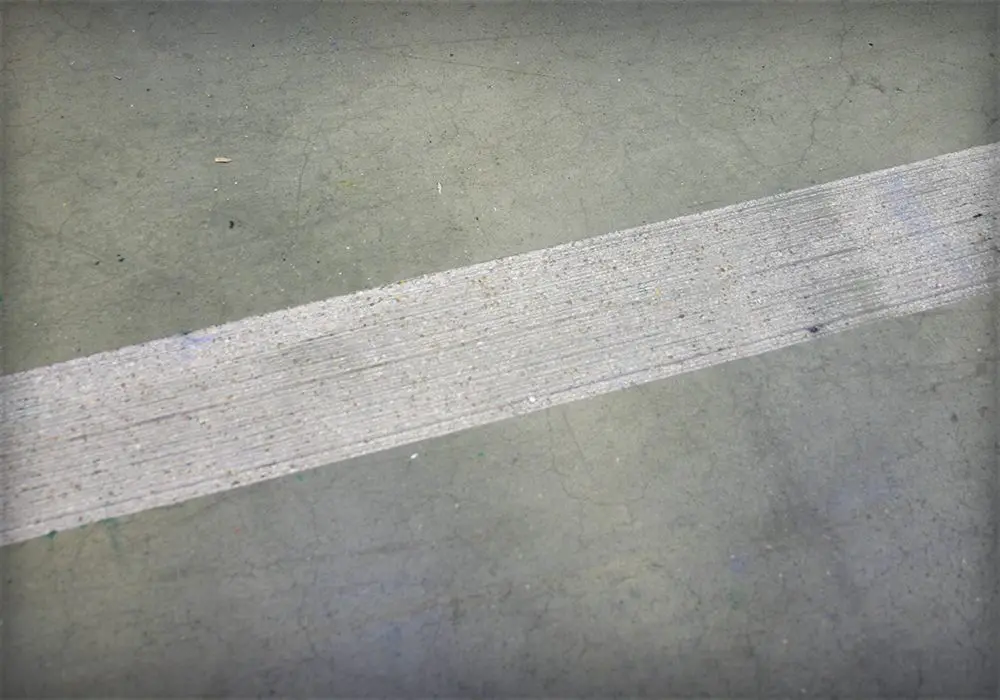
Installation Planning and Pre-Work.
We ask all customers to thoroughly clean their warehouse and distribution center floors before we arrive to install any floor striping. Embedded floor striping requires the use of masking tape. Therefore, the unprepared areas need to be clean enough for tape to stick.
ASG Services works closer than ever with customers choosing this option as we appreciate that downtime costs money. We will present schedules to help fit with your operation and will which help our installation teams achieve their deadlines.
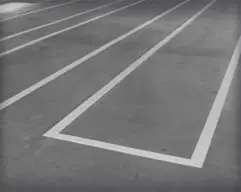
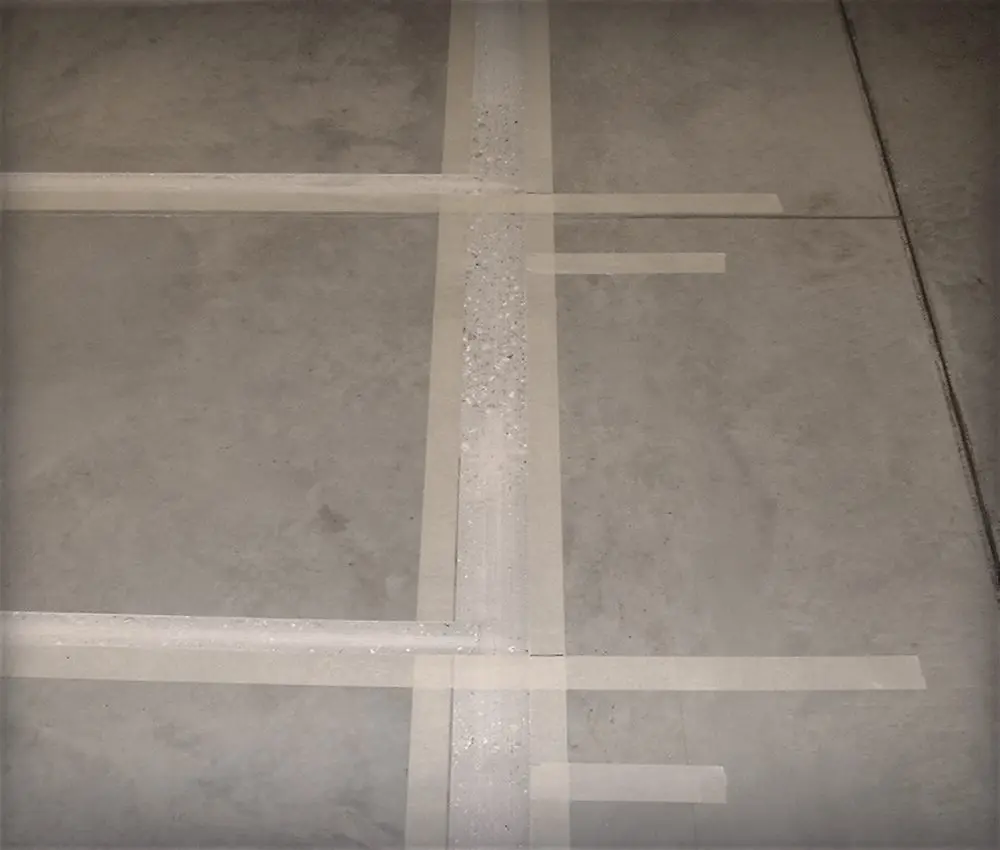
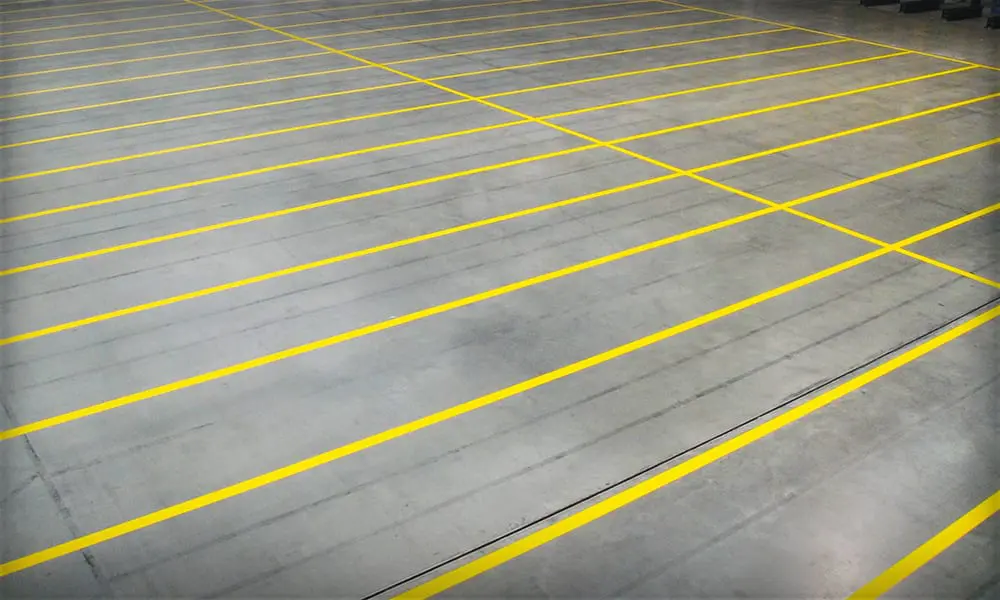
Services
Warehouse Striping Installation Services.
All of our installation teams are fully trained and experienced in this advanced installation process, which is critical for successful applications. All are fully insured to work on any customer site throughout the US and beyond. Multi-site projects are normal for ASG, keeping our teams out on embedded striping daily.
Resources & Takeaways
Downloads

Help & Advice
Frequently Asked Questions
What colors should I use?
OSHA recommends the following:
- Yellow. – Yellow shall be the basic color for designating caution and for marking physical hazards such as: Striking against, stumbling, falling, tripping, and “caught in between.”
- “DANGER” – Red, or predominantly red, with lettering or symbols in a contrasting color.
- “CAUTION” – Yellow, or predominantly yellow, with lettering or symbols in a contrasting color.
- “WARNING” – Orange, or predominantly orange, with lettering or symbols in a contrasting color.
- “BIOLOGICAL HAZARD” – Fluorescent orange or orange-red, or predominantly so, with lettering or symbols in a contrasting color.
Most work carried out by ASG Services is done with yellow and/or white. Occasionally we will be asked to use red, green, blue and grey. If in doubt ask what we can provide, almost any color is available.
What preparation is best for my warehouse?
Preparation helps improve durability, so if you are operating a very busy facility or moving items which are heavy, you will likely need a preparation method.
There are several options to consider:
- Heavy traffic areas – consider embedded striping,
- High traffic – consider shot blasted,
- General and low-level traffic – it may be possible to use an epoxy directly on a cleaned surface, having a similar durability level as floor tape.
It is typically more cost effective to have a preparation method when compared to several years of recoating and touch-ups which will be needed.
Will I need to give you a drawing? How detailed should it be?
For the most accurate price and planning, it is best to give us as much as possible, having a drawing helps you visualize and us to plan and quote. CAD are easiest as we can use them to pull measurements from, while PDF with measurements added is another great way to provide us with the information.
However, this is not essential, we can help with basic depictions or arrange for a partner firm to visit site and create a much more detailed drawing, contact us for pricing.
How can I look after the lines once I have them?
Keeping the area clean and clear of debris is the easiest thing any facility can work on. However, we strongly recommend customer work on their training programs to encourage the following:
‘Lift Clear’ – Ensure the forklift truck drivers and warehouse operatives lift pallets clear off the floor before maneuvering.
‘Turn Clear’ – Only turn the MHE steering when the wheels are clear of the lines. Twisting on the line will wear the paint surface and pull it off the concrete in some cases.
‘Clean Feet’ – Entrance mats can reduce the amount of dirt and debris carried in on shoes.
‘Floor Watch’ – Instill awareness in the workforce to remove debris and harmful objects when they are spotted.
‘Pallet Care’ – Removing or repairing damaged pallets will prevent them being dragged and gouging the coating.
‘Clean Care’ – The cleaner the floor is, the less abrasive items there are to wear the lines, maintain a cleaning regime to suit your operation.
What floor marking dimensions are typical in warehouses?
The most common dimensions are in walkway widths (4ft), pallet lane widths (pallet type dependent plus the line width) and line widths (4”), but every facility is different and may need custom sizes.
OSHA provides the following:
“The lines used to delineate the aisles may be any color so long as they clearly define the area considered as aisle space. The lines may be composed of dots, square, strip or continuous, but they too must define the aisle area.
The recommended width of aisle markings varies from 2 inches to 6 inches; therefore, any width, 2 inches or more is considered acceptable.
The recommended width of aisles is at least 3 feet wider than the largest equipment to be utilized, or a minimum of 4 feet.”
Standard Number: 1910.22(b) – Compliance with Aisle Markings (Part 1910.22(b)) – [Corrected April 17, 2009] – Read Compliance with Aisle Markings.
Case Studies
We’ve helped hundreds of global companies
Case studies from some of our amazing customers who are improving their warehouses.
Fast apply and durable adhesive floor tape is another striping option and available to buy from our online store.
Find more…
Contact us and discover how we can help.

